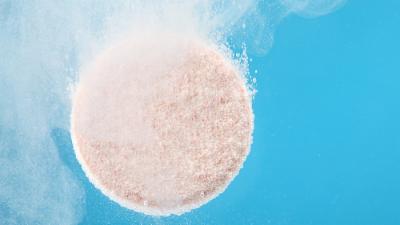When you start to feel a cold coming on, or even worse, the flu, your natural instinct might be to guzzle down as much Emergen-C as humanly possible.
But is that really a good idea? Short answer: It depends.
“We all know we need certain vitamins to repair and heal our bodies, and zinc and vitamin C have been proven to help protect the body, before you’re sick or right at the start,” says Aileen Marty, M.D., a professor specializing in infectious diseases at Florida International University. Cold supplements can help cut the cold off at the knees, and reduce symptoms, she says.
According to a 2013 review on the efficacy of vitamin C for colds, it’s particularly useful for people who are super active or have physically strenuous jobs, but the jury is still out on whether it can do much for the general population (a few studies have shown it reduces the duration of colds by about a day, but not enough to be conclusive). Meanwhile, research has also linked zinc to faster recovery from cold symptoms.
More Isn’t Always Better
Here’s the catch: When it comes to water-soluble vitamins, like vitamins B and C, the body can only absorb so much. “If you take too much, you’re essentially wasting your money because you’ll just pee it out,” says Marty. (The same seems to go for zinc; the body only stores a minimal amount.) But, luckily, other than being a money-waster, taking a bunch of vitamin C won’t hurt you.
That’s not the case for several other vitamins that can be found in immune-boosting supplements. Fat-soluble vitamins A, D, E, and K, can cause issues when they’re taken in large doses. These are absorbed in the small intestines and then stored in the liver and fat tissues. It’s much easier to reach dangerous levels with fat-soluble vitamins because they build up over time. Vitamin A overdose, for example, can cause vision changes, bone pain, and liver damage. According to the National Institutes of Health, supplements are the the primary reason people experience vitamin A toxicity.
Unfortunately, though, experts aren’t sure exactly how much is too much. So, for now, most health professionals and nutritionists advise not taking any more than 100 percent of your recommended daily allowance (RDA) of any given vitamin or mineral through supplementation alone, Marty says. (You can find information on your RDA for some vitamins and minerals here.)
For the record: Immune-boosting supplements often contain concentrations of vitamins that far exceed your RDA. For example, one packet of Emergen-C Immune + Super Orange contains 1,667 percent of your daily value of vitamin C, and 500 percent of your daily value of vitamin B6. And one dose of Airborne contains nearly 17 times the RDA of vitamin C, more than 100 percent of the RDA of select B vitamins, 40 percent of the RDA of vitamin A, and a day’s worth of vitamin E.
If you follow the dosage instructions and only take the cold-fighting supplement for a short period of time, there’s very little risk of toxicity, Marty says. However, the longer you take high amounts of fat-soluble vitamins, the more they can build up in your body. That’s why these immunity-boosting supplements are only intended for short-term use, she adds.
There’s A Better Way To Boost Your Immune System
“The best thing anyone can do is maintain good health every day by eating well and exercising,” says Marty.
It’s true. When it comes to vitamins and minerals, it’s always best to operate with a food-first mentality. If you’re looking for vitamin C, try yellow bell peppers, guava, kale, papaya, and strawberries, which all have more vitamin C than an orange. For zinc, add foods like shellfish and yogurt to your diet. Basically, as long as you’re eating a whole-foods diet that’s rich in a vegetables, produce, meats, and dairy, you should get all of the nutrients you need for a strong immune system. And if your doctor does find that you have any nutrient deficiencies, supplement that nutrient specifically, and follow your doctor’s instructions on dosage, she says.
Meanwhile, research shows that exercise can actually boost the cells that aid our immune system and lower inflammation. For example, a 2015 University of Houston study found that a single bout of moderate-intensity exercise, like jogging or lifting moderate weights, activates the immune system to fight off infection.
So maybe consider swapping out your supplements for a rainbow-filled plate—with a side of exercise.












